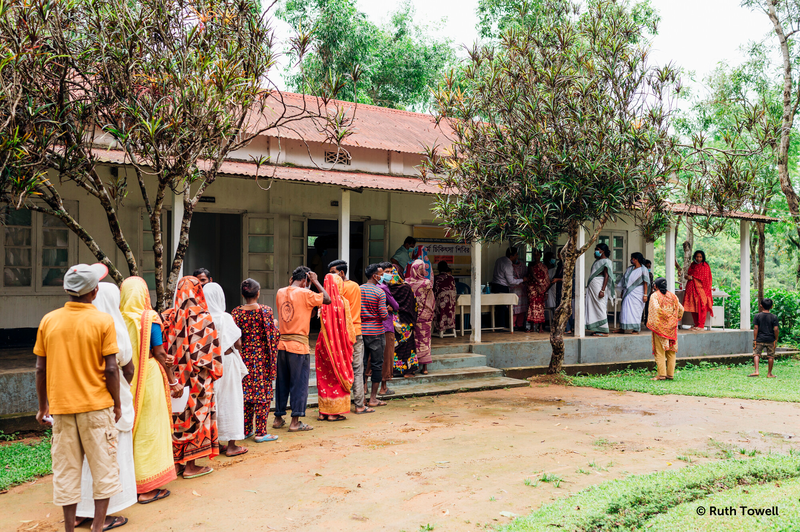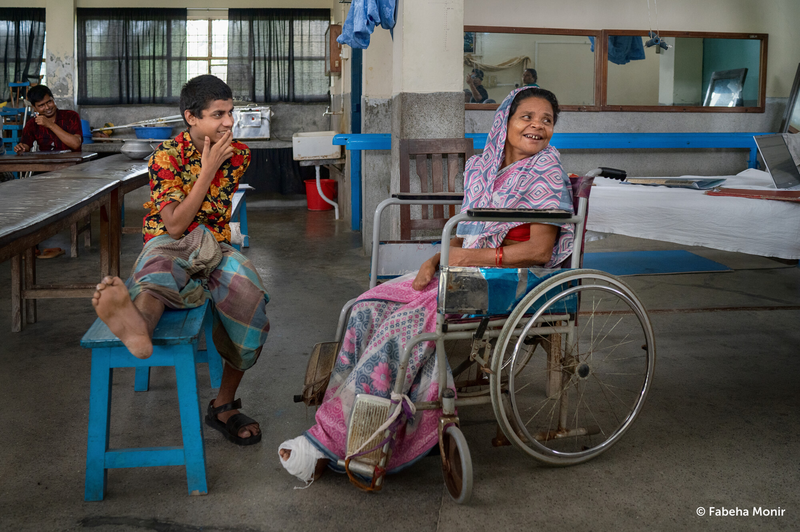Universal health coverage: people affected by leprosy must not be left behind
As global leaders commit to leaving no one behind at the UN High Level Meeting on Universal Health Coverage, this must include people affected by leprosy.
On December 12 2012, world leaders sat in General Assembly Hall at the UN in New York. In a historic resolution, they reaffirmed that every person has the right to the best possible health. To enable everyone to achieve this right, countries were urged to achieve universal health coverage.
Universal health coverage (UHC) is the idea that every person should have access to high-quality and affordable health care. Serving people living on the edges of society, where healthcare is unjustly still a luxury, this is an ideal we are deeply dedicated to.
Next week, government representatives will once again gather to discuss UHC. In a fortnight they will meet for the UN General Assembly on the Sustainable Development Goals.
There is a sense of anticipation in the air. This September, nations have the opportunity to make global progress that will improve the lives of billions of people. And there is a lot of progress to be made.
Ahead of the High Level Meeting on UHC, the global community has committed to leaving no one behind. This must include people affected by leprosy.
People affected by leprosy need universal healthcare
Progress on UHC cannot come soon enough for people affected by the disease. 40 years after the roll-out of Multidrug therapy, the antibiotics that cure leprosy, many people affected still cannot afford to get the healthcare they urgently need.
Leprosy is a disease of poverty. Many of the people affected live in rural areas, relying on daily labouring or subsistence farming for a livelihood. When clinics are hours away, and incomes are low, many people cannot afford to travel to health services.

What’s more, there is an acute lack of leprosy services across countries where the disease is endemic. Since the 1990s, when leprosy was presumed to be eliminated as a public health problem, it has been a low priority for governments. Medical schools rarely include it in the curricula. As a result, most health workers don’t have the expertise to diagnose or treat it.
Without early treatment, leprosy causes permanent disability and needless pain. Even after people get the cure, they often need follow up care. Reconstructive surgery or physiotherapy to restore mobility in paralysed hands and feet, for example, or mental health support to recover from the trauma of discrimination and stigma.
For thousands of people affected by leprosy, their only option for treatment is to travel to specialist hospitals in large cities, including those run by Leprosy Missions. Staff at these hospitals provide the best possible care at no cost to people affected by leprosy, but they are just too far out of reach for too many.
People affected by leprosy are some of the most vulnerable people in the world. They desperately need access to healthcare in their communities.
Leaving no one behind means no one
The need is clear. But people affected by leprosy are still neglected by governments and health sectors across the world.
Working alongside our partners, we’re changing this. We’re finding and curing people affected by leprosy before the disease causes permanent disabilities. We’re training community leaders and health workers to recognise and diagnose leprosy, so we can build sustainable systems that meet people’s needs for decades to come.

UHC isn’t just about stopping the spread of diseases, though. Health is a complete state of wellbeing, physical and mental. As part of self-help groups, people affected by leprosy are learning how to care for hands and feet that have been disabled by the disease. Our partners make sure people are getting the mental health and livelihood support they need to not only recover from leprosy but feel more resilient for the future.
But we need to see more global action.
For every person diagnosed with leprosy, estimates suggest 19 go without treatment. Since the Covid-19 pandemic, even more people have been missed.
The climate crisis is pushing ever more people into extreme poverty. Conflict is displacing millions; financial crises are leaving countries and families in economic turmoil. Reaching basic healthcare, let alone specialist services, is harder than ever.
The challenges to achieving UHC, and meeting the needs of the most neglected and vulnerable, are immense. But without action, countless more people will face the unjust physical and emotional toll of leprosy.
As the global health community meets next week to once again commit to achieving UHC, people affected by leprosy must be included in planning and future progress. These communities and families are some of the most marginalised in the world; they have already been deprived of their right to health for too long. When it comes to universal health coverage, they must not be left behind.